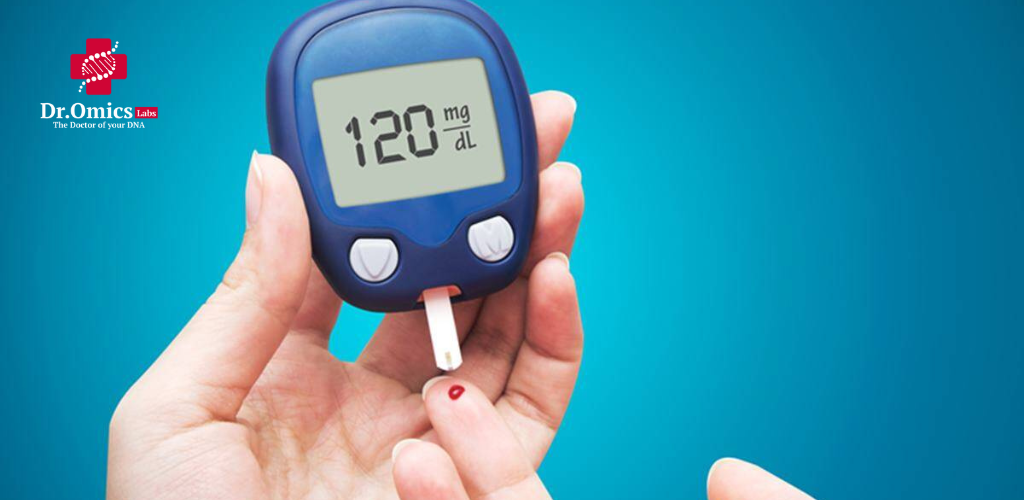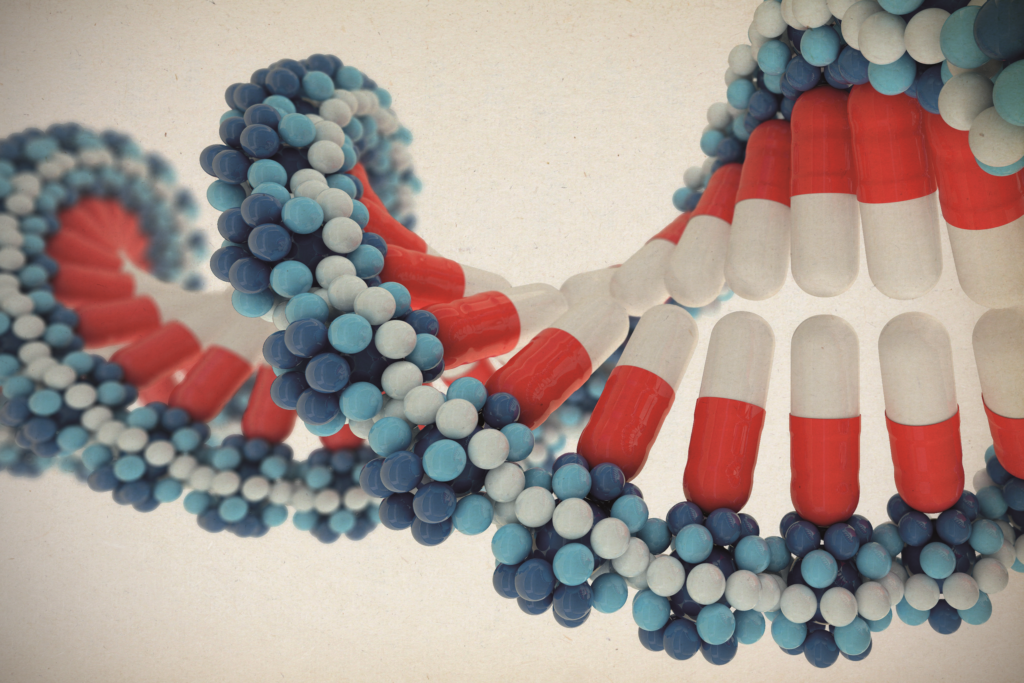The Role of Pharmacogenomics in Diabetes Treatment: Unlocking Precision in Every Prescription
Diabetes isn’t just about blood sugar anymore. Behind every prescription lies a deeper layer of biological individuality—our genes. Type 2 Diabetes Mellitus (T2DM), a complex disorder that once appeared to follow predictable patterns, is now known to be shaped by a tangled web of genetics, lifestyle choices, and environmental factors. The rise of pharmacogenomics in diabetes—the study of how genes affect a person’s response to drugs—has shifted the narrative from generalized treatment to precision-guided care (1).
The potential of pharmacogenomics is staggering. Imagine being able to predict not only which diabetes drug will work best for a patient, but also which one might cause side effects, or simply fail. That’s no longer science fiction. It’s emerging clinical practice. The era of the diabetes medication DNA test is here, and it’s transforming how clinicians approach diabetes therapy, ushering in the age of precision medicine for diabetes (2).
One Condition, Many Genetic Profiles
Diabetes may present similarly across patients, but the way each individual processes medications like metformin, sulfonylureas, or thiazolidinediones can vary drastically. These variations often come down to single nucleotide polymorphisms (SNPs)—tiny genetic changes that affect drug metabolism, transport, and response. Some patients carry gene variants that make standard doses ineffective or risky, while others respond exceptionally well to certain drugs. The field now recognizes that ignoring these differences is a recipe for treatment failure and unnecessary side effects (4).
For instance, studies have shown that polymorphisms in the SLC22A1 gene can reduce metformin transport into liver cells, weakening its efficacy. Meanwhile, variants in CYP2C9 influence sulfonylurea metabolism, affecting both glucose control and the risk of hypoglycemia. By identifying such markers, the best genetic test for diabetes treatment can arm clinicians with the data needed to personalize regimens before the first pill is even taken (3).
Beyond Genes: Gut Feelings and Microbial Clues
While genetics lay the foundation, another factor is emerging as a surprising co-pilot in diabetes therapy: the gut microbiome. Enter pharmacomicrobiomics, an extension of pharmacogenomics that studies how gut microbes influence drug responses. This area is particularly exciting in T2DM, where the gut flora appears to interact directly with common diabetes medications.
Research has revealed that drugs like metformin don’t just act on human tissues—they also reshape the gut microbiota, encouraging the growth of beneficial species such as Akkermansia muciniphila and Bifidobacterium adolescentis. These microbes, in turn, influence how the body responds to therapy, affecting both efficacy and side effects (1). What’s even more fascinating is that traditional medicines—such as herbal compounds used in Chinese medicine—may work synergistically with Western drugs via these microbial pathways.
Modifying the microbiome through diet, probiotics, or even fecal transplants could soon become part of a comprehensive precision medicine for diabetes strategy. This convergence of genomics and microbiology opens new doors for personalized care, far beyond what conventional drug prescription models can offer.
From Reactive to Predictive: Redefining Diabetes Care
Conventional diabetes treatment operates like trial-and-error. A drug is prescribed, results are monitored, and adjustments are made as needed. But this reactive approach is inefficient, often delaying optimal glycemic control and increasing the risk of complications. With pharmacogenomics, the shift is toward predictive medicine—where a patient’s genetic makeup guides the selection and dosage of medications from day one (4).
This is particularly crucial in a disease where long-term outcomes hinge on early, effective intervention. Studies now support preemptive genotyping, which involves testing a patient’s DNA for relevant variants before treatment begins. This proactive strategy isn’t just about choosing the right drug—it’s about avoiding the wrong one. The stakes are high: suboptimal treatment can lead to prolonged hyperglycemia, organ damage, and increased mortality.
With genotyping technologies becoming faster and cheaper, integrating them into everyday clinical practice is no longer a distant goal. The cost of ignoring genetic response to diabetes drugs may soon outweigh the price of testing itself.
Precision at the Population Scale
You might wonder, how practical is this in real-world healthcare? Surprisingly, very. Pharmacogenomics is already guiding treatment in certain hospitals and specialty clinics worldwide. As data accumulates and digital health records integrate genetic profiles, physicians will gain seamless access to actionable insights.
Moreover, population-level data is refining our understanding of which genetic variants are most relevant across ethnic groups. This matters because the frequency of pharmacogenetically significant variants can differ by ancestry, affecting how populations respond to diabetes medications. In other words, precision medicine isn’t just about the individual—it’s about tailoring public health strategies to genetic diversity.
Future-Ready: What’s Next for Pharmacogenomics in Diabetes?
The frontier continues to expand. New drug targets identified through pharmacogenomic research are entering clinical trials, and innovative therapies that exploit these discoveries promise a new class of diabetes treatments. We’re not just refining existing options—we’re building better ones from scratch.
Yet for this promise to be fully realized, awareness must rise. Clinicians need training, patients need access, and policymakers must recognize the long-term benefits of adopting these tools. As researchers continue to unravel the complex interplay of genes, drugs, and microbes, the message is clear: diabetes management is no longer one-size-fits-all.
The integration of the diabetes medication DNA test into routine care could be the tipping point—turning personalized treatment from a privilege into a standard.
Conclusion
Pharmacogenomics isn’t just a buzzword—it’s a clinical imperative. For a condition as pervasive and multifaceted as diabetes, understanding the genetic architecture of drug response is the next logical step. Whether it’s identifying poor responders, minimizing side effects, or enhancing therapeutic precision, this discipline offers a roadmap toward more intelligent, patient-specific care.
With the rise of pharmacogenomics in diabetes, the dream of personalized medicine is becoming a reality. If you’re wondering what the best genetic test for diabetes treatment is—it’s the one that gets you ahead of the curve, where your DNA guides your destiny and not the other way around.
References
- Luo, J., Shu, Y., & Zhang, W. (2023). Editorial: Pharmacogenomics and pharmacomicrobiomics in type 2 diabetes mellitus (T2DM). Frontiers in Endocrinology, 14. https://doi.org/10.3389/fendo.2023.1287807
- Zeng, Z., Huang, S., & Sun, T. (2020). Pharmacogenomic studies of current antidiabetic agents and potential new drug targets for precision medicine of diabetes. Diabetes Therapy, 11(11), 2521–2538. https://doi.org/10.1007/s13300-020-00922-x
- Naz, F., Qadir, R., Baammi, S., Ali, A., & Rehman, M. U. (2023). Pharmacogenomics and diabetes. In Elsevier eBooks (pp. 115–135). https://doi.org/10.1016/b978-0-443-15336-5.00012-9
- Samajdar, S. S., Maheshwari, A., Tiwari, A., Mukherjee, S., Biswas, K., Saboo, B., Rawool, A. K., & Joshi, S. R. (2024). Decoding the Genetic Blueprint: Advancing Personalized Medicine in Type 2 Diabetes through Pharmacogenomics. Clinical Diabetology, 13(6), 386–396. https://doi.org/10.5603/cd.102035




